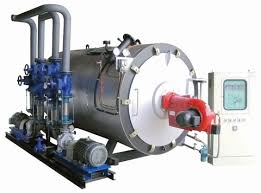
Dec . 24, 2024 01:31 Back to list
Oil Burning Water Heater Maintenance Tips for Efficient Performance and Longevity
Understanding Oil Burning Water Heaters Efficiency and Maintenance
Oil burning water heaters are a type of heating appliance that utilize oil as their primary fuel source to heat water for residential or commercial use. These systems are particularly useful in regions where natural gas is not readily available and can provide a reliable and efficient means of hot water production. In this article, we will delve into how oil burning water heaters work, their benefits, maintenance requirements, and considerations for potential users.
How Oil Burning Water Heaters Work
An oil burning water heater operates by burning fuel oil to generate heat. This heat is then transferred to water within a tank or through a heat exchanger. The core components include an oil tank, burner, heat exchanger, and the water storage tank. When hot water is needed, the burner ignites the oil, producing combustion gases that heat up the surrounding water.
The process begins when the thermostat detects a drop in the temperature of the stored water. It sends a signal to the burner, prompting it to ignite the oil. The flame from the burner creates hot gases that circulate through the heat exchanger, warming the water inside the tank. Once the desired temperature is reached, the burner shuts off automatically, conserving fuel.
Benefits of Oil Burning Water Heaters
1. High Efficiency Modern oil burning water heaters are designed for optimal fuel efficiency. Many models can achieve annual fuel utilization efficiency (AFUE) ratings above 80%, meaning that the majority of the oil consumed is converted into usable heat.
2. Consistent Hot Water Supply Oil burning water heaters can provide a continuous supply of hot water, making them ideal for households with high demand, such as those with multiple bathrooms or heavy water usage for dishwashing and laundry.
3. Less Dependency on Natural Gas For homes located in areas without access to natural gas, oil water heaters present a viable alternative. They can be especially useful in rural locations where natural gas pipelines are not available.
oil burning water heater

Maintenance Considerations
To ensure the longevity and efficiency of an oil burning water heater, regular maintenance is necessary. Here are some key maintenance practices
1. Regular Inspections Homeowners should schedule annual inspections by a qualified technician. These professionals can check for leaks, wear and tear, and ensure the burner is functioning correctly.
2. Cleaning the Burner Over time, soot and other deposits can build up in the burner, leading to inefficient operation. Cleaning the burner regularly helps maintain optimal performance.
3. Checking Oil Supply Regularly monitoring the oil level in the tank is crucial to avoid running out of fuel, especially in colder months when the heater is used more frequently. It is advisable to schedule oil deliveries in advance.
4. Flushing the Tank Just like other heating systems, sediment can accumulate in the bottom of an oil burning water heater tank. Flushing the tank periodically helps prevent this buildup and improves efficiency.
5. Ventilation Ensuring proper ventilation is essential for oil burning heaters, as they produce combustion gases that need to be safely expelled. Checking the venting system yearly can prevent dangerous gas buildup.
Conclusion
Oil burning water heaters offer a reliable and efficient solution for heating water in homes without access to natural gas. While they come with their own unique set of benefits and considerations, the efficiency, durability, and consistent hot water supply they provide can significantly enhance your home’s comfort. Regular maintenance is critical to ensure optimal performance and longevity. If you’re considering installing an oil burning water heater, consult a professional to determine the best model for your needs and enjoy the warmth and comfort of efficiently heated water year-round.
-
High-Efficiency Commercial Oil Fired Steam Boiler for Industry
NewsJul.30,2025
-
High-Efficiency Biomass Fired Thermal Oil Boiler Solutions
NewsJul.30,2025
-
High Efficiency Gas Fired Thermal Oil Boiler for Industrial Heating
NewsJul.29,2025
-
High-Efficiency Gas Fired Hot Water Boiler for Sale – Reliable & Affordable
NewsJul.29,2025
-
High Efficiency Biomass Fired Hot Water Boiler for Industrial and Commercial Use
NewsJul.29,2025
-
High-Efficiency Biomass Fired Hot Water Boiler for Industrial Use
NewsJul.28,2025
Related PRODUCTS






















